Design decisions for buildings and communities are critical to efforts to increase local and regional resiliency. Building designers — of residential, institutional, and commercial structures — should strive to incorporate passive and active survivability concepts into new and renovated structures.
Community planners and developers need to incorporate concepts that increase the capacity to maintain transportation flow, strategies to handle water management, and infrastructure approaches that will withstand a variety of risks.
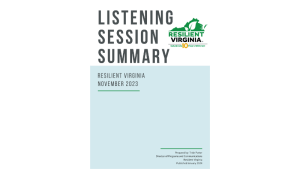
2023 Listening Session Summary
Our 2023 Listening Session discussion focused on roadblocks to building community resilience and challenges in communicating about resilience and strategies to overcome these roadblocks; as well as collaboration, partnerships, and other ways to work with others on resilience.
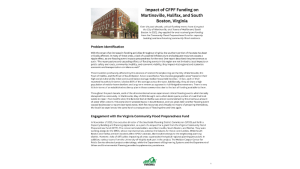
Impact of CFPF Funding on Martinsville, Halifax, and South Boston, Virginia
After a decade of experiencing critical flood events, Martinsville, Halifax, and South Boston received grant funding from the Community Flood Preparedness Fund for capacity building and benchmarking community flood resilience.
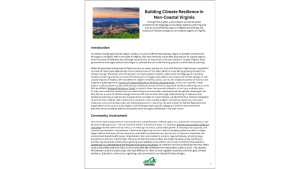
Building Climate Resilience in Non-Coastal Virginia
This report identifies four relevant categories of actions that could be taken to promote resilience in non-coastal Virginia: community organizing, education initiatives, economic productivity, and improving access to resources.
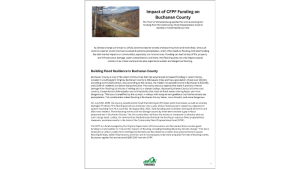
Impact of CFPF Funding on Buchanan County
After severe flooding in 2021 and 2022, Buchanan County applied for and received grant funding from the Community Flood Preparedness Fund to develop a Flood Resiliency Plan.
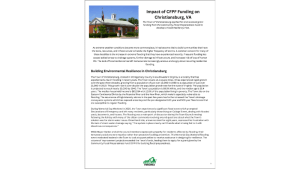
Impact of CFPF Funding on Christiansburg, VA
The Town of Christiansburg is a locality that has experienced a rise in flooding in recent years so they applied for and received grant funding from the Community Flood Preparedness Fund to develop a Flood Resiliency Plan.

2023 Listening Session Summary
Our 2023 Listening Session discussion focused on roadblocks to building community resilience and challenges in communicating about resilience and strategies to overcome these roadblocks; as well as collaboration, partnerships, and other ways to work with others on resilience.

Impact of CFPF Funding on Martinsville, Halifax, and South Boston, Virginia
After a decade of experiencing critical flood events, Martinsville, Halifax, and South Boston received grant funding from the Community Flood Preparedness Fund for capacity building and benchmarking community flood resilience.

Building Climate Resilience in Non-Coastal Virginia
This report identifies four relevant categories of actions that could be taken to promote resilience in non-coastal Virginia: community organizing, education initiatives, economic productivity, and improving access to resources.

Impact of CFPF Funding on Buchanan County
After severe flooding in 2021 and 2022, Buchanan County applied for and received grant funding from the Community Flood Preparedness Fund to develop a Flood Resiliency Plan.

Impact of CFPF Funding on Christiansburg, VA
The Town of Christiansburg is a locality that has experienced a rise in flooding in recent years so they applied for and received grant funding from the Community Flood Preparedness Fund to develop a Flood Resiliency Plan.
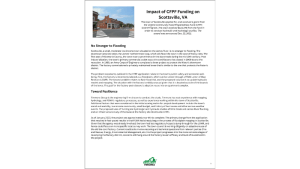
Impact of CFPF Funding on Scottsville, VA
Scottsville, a small, moderate-low income town situated on the James River, is no stranger to flooding. This report looks at the impact a CFPF grant has made in their community.

Lynchburg Rising Final Report
In 2022 and 2023, the Lynchburg Rising project, funded by the US Environmental Protection Agency Office of Environmental Justice , engaged historically disinvested neighborhoods in the City, which are disproportionately impacted by these hazards, to better understand their risks and to develop community capacity to address them.
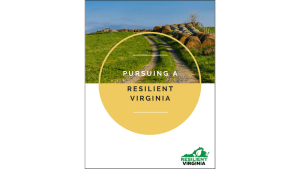
Pursuing a Resilient Virginia
In this report, we look at the attributes of a resilient community, the various approaches Virginia communities have taken to build resilience, and how we can work together to become more resilient.
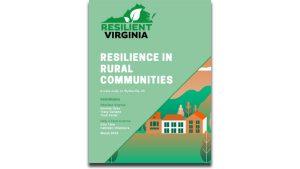
Resilience in Rural Communities
For the purposes of this case study, researchers evaluated the status of resiliency in the town of Wytheville, Virginia, along with their overall capacity and resources needed to enhance their readiness for environmental, social, and economic threats.
